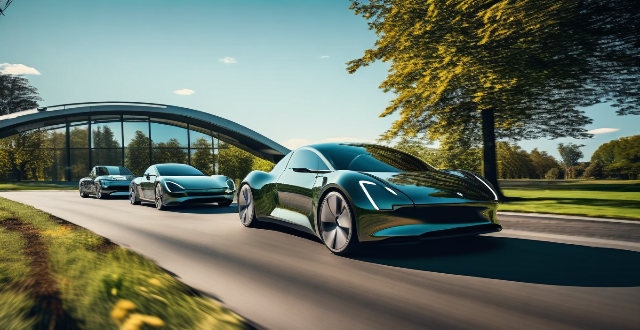The advancements in technology have significantly shaped the culture surrounding cars, transforming the way we perceive, use, and interact with them. From improved safety features and efficiency to enhanced performance and connectivity, technology has transformed the driving experience. The rise of autonomous driving and shared mobility services has also changed the way we travel, fostering a sense of community among riders. As technology continues to evolve, it will undoubtedly continue to shape car culture in new and exciting ways.

The Impact of Technology on Car Culture
Introduction
The advancements in technology have significantly shaped the culture surrounding cars. From the invention of the automobile to the development of electric and self-driving vehicles, technology has transformed the way we perceive, use, and interact with cars.
Evolution of Car Design and Performance
Improved Safety Features
Technology has played a crucial role in enhancing car safety features. Modern cars are equipped with advanced airbags, anti-lock brakes, and electronic stability control, which have significantly reduced the number of accidents and fatalities on the road.
Increased Efficiency
Advancements in engine technology have led to more fuel-efficient cars. Hybrid and electric vehicles have become increasingly popular due to their environmental benefits and lower operating costs.
Enhanced Performance
Technology has also improved the performance of cars. Turbochargers, direct injection, and variable valve timing are just a few examples of technologies that have made cars faster, more powerful, and more responsive.
Changes in Driving Experience
Connectivity
Cars now offer a range of connectivity options, including Bluetooth, Wi-Fi hotspots, and integrated infotainment systems. These features allow drivers to stay connected to the outside world while on the road.
Autonomous Driving
Self-driving cars are no longer a futuristic concept but a reality. Autonomous vehicles use sensors, cameras, and artificial intelligence to navigate roads without human intervention. This technology has the potential to revolutionize the way we travel by reducing traffic congestion, improving safety, and providing mobility for people who cannot drive.
Shared Mobility
Technology has also facilitated the rise of shared mobility services like ride-hailing and car-sharing. These services use smartphone apps to connect drivers with passengers or renters, making it easier for people to access transportation without owning a car.
Impact on Car Culture
Shift in Perception
As technology continues to shape the car industry, our perception of cars is also changing. Cars are no longer seen solely as a means of transportation but as mobile devices that offer entertainment, connectivity, and even autonomy.
Environmental Consciousness
The development of eco-friendly technologies like hybrid and electric vehicles has raised awareness about the environmental impact of traditional gasoline-powered cars. This has led to a shift in car culture towards more sustainable and responsible driving habits.
Social Interaction
With the rise of shared mobility services, social interaction during travel has become more common. People can now connect with others while commuting or traveling, fostering a sense of community among riders.
Conclusion
In conclusion, advancements in technology have profoundly influenced the culture surrounding cars. From improved safety features and efficiency to enhanced performance and connectivity, technology has transformed the way we interact with and perceive cars. As technology continues to evolve, it will undoubtedly continue to shape car culture in new and exciting ways.